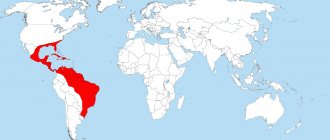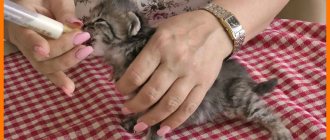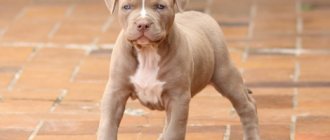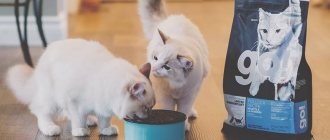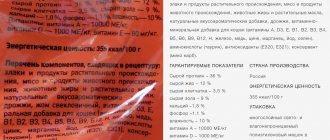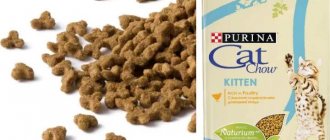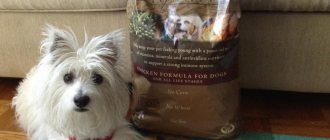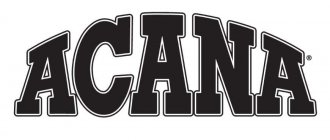Grain mixtures
The main food for finches is grain mixtures. In nature, the largest portion of the diet of these birds consists of seeds and grains of cultivated and wild plants. This type of food provides birds with energy due to the large amount of carbohydrates it contains, and also acts as a source of vegetable protein, fiber, fats, vitamins, micro and macroelements. Grain mixtures for finches can be prepared independently or purchased ready-made at a pet store.
We assemble it ourselves
Grain mixtures for finches must include at least 6 types of products. The main component of the mixture is millet of various types. Finches eat white, gray and yellow most readily. Red millet should also be included in the bird's diet. It is rich in carotene and carotenoids, which are precursors of vitamin A, which is necessary for healthy eyes, mucous membranes and skin, as well as enhancing the color of feathers.
Peeled oats should be present in the amadin's diet. Birds usually eat it willingly, but in large quantities this food can cause intestinal blockage in them, as it contains a lot of fiber. Flaxseed is of great benefit to birds. It is rich in vegetable fats and fatty acids, which have a beneficial effect on the condition of the skin, feathers and overall health of the bird. Hemp seed also has the same properties, so it is also included in the grain mixture in small quantities. Mandatory components of the grain mixture for finches are also chumiza, rapeseed, mogar and canary seeds.
Finches love the seeds of meadow grasses: hedgehogs, timothy, fescue, shepherd's purse, plantain, etc. They are collected in the summer during the ripening period and dried, and then added to food throughout the year.
Attention! Seed collection must be carried out in environmentally friendly places - away from roads, large cities, industrial enterprises and farmland treated with pesticides.
To correctly compose a grain mixture for finches, you should take the following quantities of its components:
- millet – 1 kg;
- canary seeds – 300 g;
- meadow grass seeds – 250 g;
- oats – 150 g;
- chumizy – 100 g;
- rapeseed – 100 g;
- mogara – 100 g;
- flaxseed – 50 g;
- hemp seed – 50 g.
One finch needs 1-2 teaspoons of this grain mixture per day. Feeding birds more grains and seeds can cause them to become obese, which can be detrimental to their health. Depending on the species of finches, their diet can be diversified with additional types of grain feed. Thus, zebra finches love fresh corn and peas, and rice finches love peeled rice.
Purchased mixtures
Ready-made mixtures for feeding finches are widely available in pet stores. They can be sold by weight or in original packaging. Preference should be given to hermetically sealed boxes that indicate the expiration date. Weighed grain mixtures may contain low-quality or expired components.
Among the factory-made feed mixtures presented in pet stores, the products of foreign manufacturers are of the highest quality:
- Vitakraft;
- Padovan;
- Fiory.
Among the variety of products from these companies, it is necessary to choose food intended for exotic birds or specifically for finches; mixtures are not suitable for other types of birds.
Before feeding the purchased mixture, you need to make sure its quality. Good-quality food does not have a musty or rancid odor, traces of mold and pests, darkened grains, particles of debris and dust.
Vitamins and water
Vitamin supplements for birds are added directly to the feed in the form of powder or drops. There are vitamins for different periods of life of birds: hatching chicks, molting, etc. Accordingly, each has its own recommendations for use, which must be followed.
And, of course, proper feeding of finches presupposes that they should have clean drinking water at their disposal around the clock.
- Like
- COMMENTS
- |
- leave a comment
- |
- Add to favorites 0
Sprouted grain
It is very useful to feed finches with sprouted grain, especially during the period of preparation for reproduction. To prepare this type of feed, the grain must be soaked for a day in warm water. Then it is wrapped in gauze, generously moistened with warm water, laid out on a saucer in an even layer and placed in a warm, dark place. During the process of germinating grain, it is necessary to ensure that it does not sour and that the gauze always remains moist. After sprouts a few millimeters high appear, the grain can be fed to birds. It should be stored in the refrigerator for no more than 2-3 days.
Vegetables and greens
Vegetables and herbs serve as a valuable source of vitamins, fiber, micro and macroelements. From vegetables, finches can be given:
- melon;
- carrot;
- beets;
- cabbage;
- cucumbers;
- tomatoes;
- pumpkin
In the summer, it is useful to diversify the bird’s diet with fresh herbs:
- clover;
- nettle;
- salad;
- dandelion leaves.
Greens are given to finches 3-4 times a week, after having been washed and dried to remove excess moisture. Plants collected in summer can be dried and fed to birds throughout the year.
Fruits and berries
Sweet fruits and berries serve as a source of vitamins and carbohydrates. Amadins can be given:
- raspberries;
- cherry;
- cherries;
- watermelon;
- pears;
- peaches;
- apples;
- bananas.
The fed fruits and berries must be ripe. They are given to birds daily in small quantities, after washing and cutting into pieces. It should be remembered that finches can be fed only seasonal vegetables, fruits and berries to avoid nitrate poisoning. Fruits and berries can also be frozen or dried and given to birds throughout the year.
Green feed
Without green feed, you will not be able to raise healthy birds. Not all finches pounce on fruits and vegetables with appetite. But birds need to be accustomed to them by hanging them on the rods. You can make a salad from vegetables and fruits by grating them on a fine grater. Birds can eat cucumber, bell pepper, pumpkin, cabbage, zucchini, carrots, apple, banana, pear, and peach. From greens: lettuce, dandelion, midge, clover, begonia, chlorophytum, tradescantia. The following are not suitable for feeding finches: onions, parsley, celery, dill, persimmons, avocado, papaya, mango.
Sprouted grains - a powerful source of vitamins and fiber - will be an excellent help. All this is recommended to feed finches in winter. You can germinate a grain mixture or cereals of one type. Give the sprouts to the birds in a separate feeder. Make sure they don't turn sour.
Mineral supplements
Amadins need mineral supplements to maintain health. They should be freely available in the cage with the birds throughout the year, but during the period when finches are preparing to breed, their presence is especially important. Birds need sand and fine gravel for proper digestion. Crushed eggshells, shell rock and sepia are sources of calcium and other minerals.
Attention! Mineral fertilizers are poured into a separate feeder. It is necessary to replenish it regularly and change the contents if water or droppings get inside.
Mineral feed
Birds should receive them all year round. Mineral fertilizer is easy to prepare at home and is also sold in pet stores. Composition: crushed shell rock, sand, eggshells, gravel. The mixture must be constantly present in the cage; sometimes it needs to be renewed, since the birds peck out its components unevenly.
Even when feeding finches, chalk and sepia (cuttlefish skeleton) are used. They are attached to the bars of the cage.
Additional feed
Finches need animal protein. Its sources can be mealworms and other insect larvae, insects in the adult stage, crushed boiled eggs, low-fat cottage cheese, and gammarus. The need for protein is especially high in birds preparing for breeding, so during this period it is necessary to feed them animal feed daily.
In the summer, you can collect small non-poisonous insects yourself. They are fed to finches live or frozen and added to the diet throughout the year.
Mash
As a nutritious and healthy addition to the main diet, birds are offered wet mash 1-2 times a week; During the molting and breeding period, this type of food is given daily. Mash is prepared from grated carrots or beets, rice, corn or buckwheat porridge, crushed boiled eggs, white bread crumbs, low-fat cottage cheese, grated apples, low-fat curdled milk, gammarus. Add a few drops of fish oil, honey and lemon juice to the mixture. The consistency of the mash should be crumbly.
Soft food
Soft food is freshly prepared human food. They are simply called a mash, since several products are mixed here at once. You can use grated carrots and hard-boiled eggs. Birds are often given grainy cottage cheese, buckwheat porridge, boiled in water without adding oil.
Owners are lazy to prepare soft food, preferring it to grain. But it should be noted that during the period of feeding the chicks, these products are simply necessary. There is also a need for nutrients in adults, for whom it is enough to give the mash 2-3 times a week. Soft food is placed in a separate container and removed after a few hours so as not to harm the pets. At first, not all finches will eat soft food, but gradually they get used to it and feast on it with pleasure.
Prohibited Products
Amadins should not be given foods containing large amounts of essential oils and other substances toxic to birds:
- parsley;
- dill;
- onion;
- mango;
- avocado;
- persimmon;
- papaya.
It is forbidden to give birds food from the human table, especially fatty and sweet foods, as well as millet and fresh bread. Feed should not be hot or cold; They are brought to room temperature before being placed in the cage. Wet food is prepared immediately before feeding, and uneaten leftovers are removed no later than 3 hours after feeding. Fermented and sour foods are dangerous for birds.
Diet
Amadins are fed differently throughout the year. When preparing birds for breeding, the proportion of animal feed, sprouted grains and greens in their diet is increased. During incubation of eggs, the amount of grain is reduced, increasing the supply of insects. During the period when chicks appear, the finches' diet should consist mainly of soft food rich in protein (boiled egg, cottage cheese, insects) and greens; As the offspring grow older, the proportion of grains increases.
The diet of finches in nature consists mainly of grains and plant seeds, greens, fruits and small insects. At home, the diet of these birds should be as close to natural as possible. To maintain the health of your pets, you should avoid feeding them monotonous food for long periods of time. The diet must contain all the nutrients birds need, the need for which in finches varies depending on their physiological state. A careful approach to diet composition is a prerequisite for maintaining the health, successful breeding and longevity of birds.
If you liked the article, leave comments and share a link to it on social networks.
Selecting soft food for finches
OUR FORUM AMADINA24.RU IS UPDATED
FEEDING GULDA'S AMADINE. FOOD AND MINERAL ADDITIVES FOR AMADIN GULDA. SOFT FOOD. VITAMINS FOR AMADIN GULDA.
Gould's finches are granivorous birds. They have an excellent appetite, but at the same time they are quite conservative. As a result, they may suffer from obesity, and therefore require spacious cages to live in.
My goulds eat the food presented at our Italian market.
Someday we will also have an abundance of feed, vitamins and mineral supplements, which we are still admiring in pictures and eagerly listening to the stories of our colleagues, breeders Amadin Gould, living in Europe and America.
Russians are no strangers to being content with what they have and inventing what has long been in abundance all over the world.
Feeds most fully, in my opinion, represent their product line on our market.
It is possible that this food would not occupy a very high place in the Western ratings, but here in Russia it is a very worthy representative of the pet industry.
So, let's move directly to the food.
The main grain feed that birds should receive daily is Naturalmix grain
,
or “Grandmix” in the amount of 1.5-2 teaspoons per bird.
These foods differ from each other in composition and price.
Other than grains (Italian millet, red millet, white millet, yellow millet, black millet, canary seed, flaxseed)
“Grandmix” contains vitamins and minerals, as well as pieces of freeze-dried fruit.
COMPOSITION: Millet 35.4%, yellow, white and red millet, canary grains 10.4%, flaxseed 2.5%, oil noug (Gwisotia abyssinica) 1.2%, pineapple, papaya, apple, biscuits: wheat flour, yeast, dye, minerals, natural flavorings, vitamins.
Mix well or give separately
Additional food for singing, for ornamental birds
Additional food for granivorous birds. A mixture of meadow and wild seeds, which has high stimulating properties, restores, strengthens and cleanses the respiratory system - singing becomes brighter, richer and more sonorous.
Ingredients: yellow and red millet 13.7%, rapeseed 9.1%, flaxseed 4.6%, oil noug (Guizotia abyssinica) 4.6%, millet 4.6%, field seeds (chicory, fennel), carrots, poppy seeds, spinach, biscuit: wheat flour, yeast, food coloring.
My opinion is that birds kept in large spacious boxes or aviaries should not have restrictions on grain feed.
However, you should know the peculiarity of finches and Gouldian finches in particular, these birds do not rummage through food, such as canaries or parrots, and having a completely filled feeder, they can be absolutely hungry if the husk from the previously eaten grain is not removed by the owner from the feeder, in his own way. The nursery solved this problem by hanging automatic feeders from ZOLUX (France) https://https://amadinagoulda.ru/index/kletki_razvodnie_boksi/0-11, which provide for automatic screening of husks.
Soft food, mash :
Delicate food with high palatability. Enriched with vitamins and amino acids, they can be used throughout the year as an excellent addition to a regular diet.
Padovan MELANGE fruit
Ingredients: Biscuits, cereals, fruits, eggs, sugar, shellfish, oils and fats, yeast.
Additional bird food with fruits
Supplementary pureed, energy-providing food. Excellent for feeding chicks and molting adult granivorous birds (canaries, budgerigars, exotic birds). Enriched with fruits and berries.
COMPOSITION: Wheat flour 19.89%, cookies 45.27%: wheat flour, yeast, salt, fruit 4.1%: apple, apricot, berries, cherry, egg, lard (pork fat - 8.92%), oil noug (Abyssinian Guizotia), minerals, glucose, dextrose, vegetable oil, dyes, antioxidants, natural flavors, vitamins, DL-methionine 200 mg/kg, L-lysine 200 mg/kg.
Padovan MELANGE vegetable
Additional bird food with vegetables
Additional food is puree, providing energy. Excellent for feeding chicks and molting adult granivorous birds (canaries, budgies, exotic birds).
Enriched with natural vegetable additives. COMPOSITION: Seeds, wheat flour 19.89%, biscuits 49.56%: wheat flour, yeast, salt, lard (pork fat - 8.92%), minerals (calcium carbonate), glucose, dextrose, vegetable oil, dyes, antioxidants, natural flavors supplements, vitamins, DL-methionine 300 mg/kg, L-lysine 300 mg/kg.
Padovan Blanc Patee
— Very tasty food with a high content of honey, does not contain artificial colors, but helps to enhance the bright colors of birds. Recommended as a ready-to-eat supplementary pureed, energy-providing feed. Excellent for feeding chicks and molting adult granivorous birds (canaries, budgerigars, exotic birds). Enriched with honey. Contains amino acids in large quantities and a unique set of microelements. Ingredients: Biscuits, cereals, sugar, minerals, oils and fats, lysine, methionine, natural flavors
Wheat flour 9.8%, soy flour, biscuits 56.2%: wheat flour, yeast, minerals, salt, apple, lard (lard) 9.8%, oil noug (Abyssinian Guizotia), vegetable oil, minerals, glucose, dextrose, honey, natural flavorings, dyes, antioxidants, DL-methionine 1500 mg/kg, L-lysine 1500 mg/kg, vitamins, sorbitol.
Рadovan Ovomix Gold Giallo —
Very good for feeding chicks and for molting adult birds.
Highly palatable food, pigmented, enriched with vitamins and amino acids. Complex egg food for chicks.
Supplementary pureed, energy-providing food. Excellent for feeding chicks and molting adult granivorous birds (canaries, budgerigars, exotic birds). COMPOSITION: Wheat flour, soybean, biscuits: wheat flour, yeast, minerals, food coloring, apple, egg, lard (pork lard), oil noug (Guizotia abyssinica), vegetable oil, minerals (calcium carbonate), dyes, antioxidants, natural flavoring additives, vitamins, DL-methionine 40 mg/kg, L-lysine 40 mg/kg.
It is well eaten by birds, especially during the period of feeding chicks, homemade porridge from several grains,
which is prepared as follows:
Several types of crushed cereals: rice, wheat, barley, corn, are poured into a saucepan and brought to a boil, then the heat under the saucepan is reduced and the porridge is cooked for another 3-5 minutes, just until the millet begins to swell a little and crack. Then the contents of the saucepan are thrown onto a sieve and washed with boiled water, removing stickiness, the porridge is shaken to remove excess liquid and laid out in feeders. Illustrated photo story about preparing mash for finches https://amadinagoulda.ru/index/gotovim_meshanku_dlja_amadin_foto_i_kommentarii/0-346 Mineral nutrition and gastroliths:
They are necessary for birds all year round, as they are both the bird’s teeth and a source of vital substances and, above all, calcium, but they are not eaten daily, but as needed. Therefore, a separate feeder with a mineral mixture should be permanently installed.
The mixture consists of crushed shell rock, sand, gravel (finches need gastroliths for proper digestion) and eggshells (the shells should come from raw eggs). You can prepare a mineral mixture for finches yourself
Min. We make the mixture ourselves: coarse river sand (wash and bake in the oven for 15-20 minutes), ground or finely crushed eggshells (pre-wash and bake in the oven for 10-15 minutes). Mix in a 50/50 ratio.
For 100 grams of such a mixture - Activated carbon 2 tablets, Calcium glucanate 1 tablet, calcium glycerophosphate 2 tablets, knead all this to a fine fraction (you buy these drugs at a local pharmacy),
purified veterinary sulfur - yellow soft powder 1/3 tsp. without a slide (just take from the pet store not food for farm animals and poultry, but veterinary food for dogs and cats). Purified medical sulfur - it can be purchased in both human pharmacies and veterinary ones. Packaged in bags of 3, 5, 10 g. In appearance, it is a soft, light yellow powder. You can also buy it in pet stores either in powder form or in tablet form (as a feed additive for dogs and cats to improve coat quality)
Mix all the ingredients thoroughly, pour them into the feeder and place them in the cage.
The minimum mixture should always be in the cage; you can buy ready-made mineral fertilizer - for example, Biogrit from Padovan or Bird Gravel.
Every week you should replace the old portion in the feeder with a new one, because... the birds will select the components they need.
Mineral stones - sepia (cuttlefish skeleton, Osso di Seppia) or pressed chalk are attached to the bars of the grill. The stones help birds wear down overgrown beaks and supplement their diet with essential minerals.
Useful supplements Microelements for finches Iodine in the diet of finches Gould
It is possible that in nature Gould's finches have a lot of iodine in the food chain, but diets
These birds in captivity are obviously poor in calcium and iodine, which leads to such catastrophic results as malfunction of the thyroid gland and complete baldness.
Iodine deficiency can also lead to deterioration of plumage, difficulty molting, breathing problems and infertility problems.
Iodine-containing products that can be recommended as complementary food for Gould's finches are, first of all, the healthiest of seaweeds - Laminaria seaweed. You can grind it in a coffee grinder and give it in a separate feeder; birds eat kelp with great appetite, especially female Gould's finches.
Dry kelp is crushed into a fine powder (in simple terms - meal) and added to food (grain mixture or soft).
During the period of molting and preparation for breeding, 1 tablespoon without top per liter jar of grain feed, this food is given to birds for 7-10 days in a row. Then a break of 2-3 weeks and again for 7-10 days. To prevent iodine deficiency - once a month and a half with soft food 1-2 times (not more often) a small pinch - 1/3 tsp. for 100-150 grams of soft food (literally sprinkle a little on top of the food).
Sprouted grain contains many different vitamins, including vitamin E, which improves the reproductive functions of adult birds and promotes the normal development of chicks, especially their nervous system.
In this regard, sprouted grain begins to be given during the period of preparation for laying until the chicks fly. How to prepare sprouted grain for Gould's finches
Greens, vegetables, fruits
The story of the breeder of Gould's finches (Germany), about the diet of birds in the nursery: Gould's finches color mutations (Konstanzia nursery)
“In addition to grain feed and chumiza branches, the cage always contains crushed eggshells, a separate complex mineral supplement “Vitakalk” mixed in half with charcoal, as well as complex vitamins “Vitakombex” 2-3 times a week in the drinking bowl. A month before breeding, I started giving sprouted grain feed (from canary mixture), which I continue to give now. And today it turned out that they are great at taking maggots, which are called Pinkies here; they are sold frozen in cardboard packages. Actually, I bought them for my parrot finch-Peales. So the Goulds immediately provided her with company and competition. And they simply ignored the mealworm that had been proposed before.”
Recommendations from a veterinarian for checking the quality of grain feed:
=Absolutely any grain feed (from trusted manufacturers in packaging or purchased in bulk at the market) must first of all be checked by you before giving it to the birds.
1. I pour the food from a pack or loose into a basin and shake it thoroughly (if I come across it, I remove dried sticks, stems, all suspicious “inclusions”) and thoroughly mix the grain with a magnet (after one day, during a post-mortem examination of a bird, small grains were found in the glandular stomach foreign metal particles).
2. I pour the grain into a fine-mesh wide sieve, cover the top with slightly damp gauze and shake it very thoroughly (dust and small lint sift through and settle on the damp gauze).
3. I take a handful of grain from a pack of grain mixture and carefully examine each grain under a high-magnification magnifying glass. Each grain you examine must be clean and not cause suspicion. If you see blackness, dark green or whitish coating along the seam of the grain, it means that the grain is infected with a fungus. This grain mixture ALL from the pack is not suitable for feeding birds.
This is how, according to the principle “Trust, but verify,” you yourself will provide your birds with high-quality grain feed.
